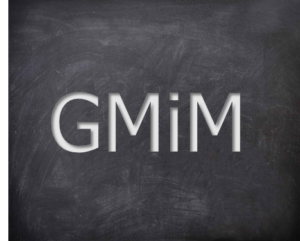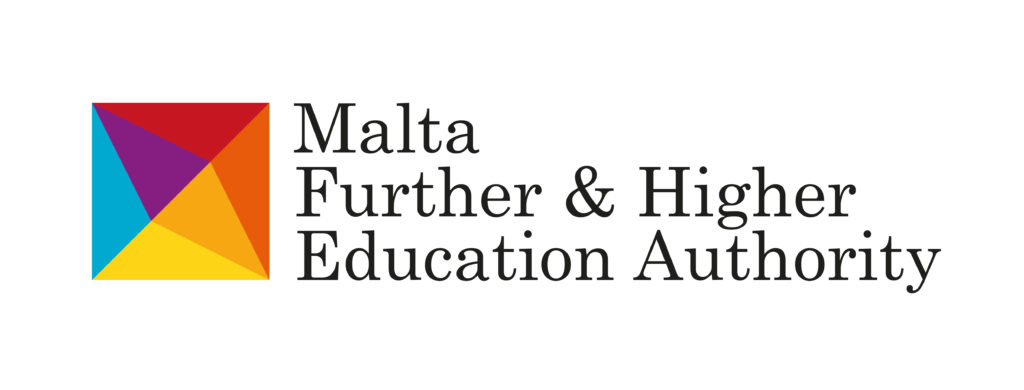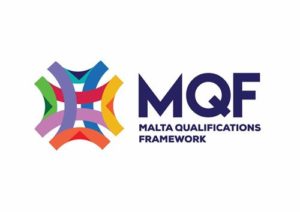
Mode of delivery
Total hours of learning
Workload
Mode of attendance
Program duration
Target Audience and group
Languages
Addresses
Entry requirements
Structure of the program
Intended learning outcomes
Teaching, learning, assessment procedures, grading system and pass rates
Next intake dates, fees, application procedures and contacts
GMiM stands for Graduate Master in Management.
It is a Master program accredited by MFHEA at MQF (Malta Qualification Framework) level 7 and EQF (European Qualification Framework) level 7. The accreditation category of the programme is “Higher Education Programme”.
Q.Institute’s GMiM is Master’s program, which blends the practical approaches of Corporate Graduate Programs with the Academic rigor of accredited Master programs.
GMiM blends online learning at Q.Institute with work-based-learning at partner companies; 100% of contact hours are delivered online.
The program is structured over core courses, elective courses and Master thesis. In the following the split of hours of learning:
- Contact hours: 600
- Core courses: 300
- Elective courses: 150
- Master Thesis: 150
- Self study hours: 1.419
- Core courses: 548
- Elective courses: 274
- Master Thesis: 598
- Supervised placement and practice hours: 821
- Core courses: 548
- Elective courses: 274
- Master Thesis: 0
- Assessment hours: 160
- Core courses: 105
- Elective courses: 53
- Master Thesis: 2
Students are require to attend all core course and the master thesis. furthermore, they can choose 30 ECTS among a list of elective course. Please find here hours of learning detailed by each individual course or module.
The attendance is part-time. Students attend classes online and work at the partner company, where they complement class learning with work-based-learning.
The program duration is of three years, which optimises the demands of both the learning and the work environment.
Bachelor graduates aged 19-30 years old (target).
The GMiM targets both EU and non-EU students and more specifically:
- Bachelor graduates employed or to be employed by a partner company by the date of beginning of the program
- Current employees of a partner company, willing to acquire MQF 7 general management knowledge, skills and competencies.
- Partner companies sign an agreement with Q-Institute, whereby they engage to accept the work-based learning protocol of Q-Institute and eventually to finance or co-finance Q-Institute’s fees.
The language of instruction is English.
The program will be delivered online. Students will do their practical learning at partner companies, where work-based-learning takes place. Partner companies are recruited every year and students are matched with them, based on the best fit between students’ characteristics and companies’ requirements.
Academic requirement: Bachelor degree (MQF6) in business administration or related fields.
Applicants with bachelors in fields non-related to business administration, they may be asked to validate pre-requisites in the some fields; a Q-Institute’s ad hoc commission will evaluate the application, eventual previous experiences and assign pre-requisetes, when required.
All applicants shall have a partner company, which engages to cooperate with Q-Institute to the training of students (WBL protocol).
English proficiency equivalent to IELT level 6.5 or above; a Q-Institute’s ad hoc commission will assess English proficiency during the selection process.
- The program is structured over three years and six semesters, where different teaching modules take place:
- Semester 1: core courses
- Semester 2: core courses
- Semester 3: core courses
- Semester 4: elective courses
- Semester 5: elective courses and beginning of Master thesis
- Semester 6: Master thesis
For more detail about the structure of the program by modules, please see here.
Overall course objectives
The Graduate Master in Management aims preparing learners for a management carrer in public companies, private companies, NGO or other types of social organizations. The program offers a blend of lectures (in person or online) and work based learning, aimed at providing learnins with both management tools and the ability to use them in real work situations; more specifically overll objectives can be spcified as follows:
- Knowledge:
- Participants develop comprehensive knowledge and understanding of general management that is founded upon and/or enhances that knowledge typically associated with Bachelor level.
- Participants learn to uses specialised or multi-disciplinary theoretical and practical knowledge of general management related subjects, some of which is at the forefront of a field of study. This knowledge forms the basis of originality in developing and/or applying ideas and to develop original and advanced appraoches to management practices.
- Participants are required to achieve a level of knowledge, that can form the basis of original research, which may contribute to social and ethical issues; participants shall demostrate capability to use the acquired knowledge, with specific reference to the fast changing business environment and the challenges to managing people and prject efficiently.
- Skills:
- Learners can use specialised or multi-disciplinary knowledge in the fields of management, leadership, functional or industry specific knowledge. Furthermore they can reflect on social and ethical responsibilities linked to the application of knowledge and judgements;
- Learners are effective communicators in the field of management and they can communicate to specialist and non-specialist audiences clearly and unambiguously reach conclusions, which may be the outcome of research, self-study or experience;
- Learners can problem solve, make evaluations, analysis and decision making in context with incomplete or limited information or unfamiliar environments and produces original research in the filed of general management;
- Learners learn to learn, acquire new knowledge, develop new skills, adapt to and anticipate emerging knowledge and techniques in the field of generale management
- Learners can demonstrates leadership skills and innovation in complex and unpredictable work and study contexts
- Competences:
- Able to frame business problems and identify relevant and rigorous solutions
- Able to lead stakeholders towards a defined outcome
- Able to persuade and communicate effectively.
Learning Outcomes for Communication Skills for the whole course
The learner will be able to:
- Synthetize key messages
- Structure effective storylines, choosing the most apropriate logic
- Develop effective supporting documents (eg. Presentations, videos) starting from a storyline
- Deliver messages effectively to an audience, in presence or at distance
Learning Outcomes for Learning to Learn Skills for the whole course
The learner will be able to:
- Leverage his/her problem solving skills to frame new challenges, structure solution hypothesis and identify competence gaps
- Search the management litterature to identify relevant approaches to fill competence gaps
- Understand and look for approaches to improve knowledge, skills and mindsets
Please find here intended learning outcomes by module.
GMiM is a part-time program, with online assessment procedures (on Q.Institute’s VLE). Its pedagogy blends different pedagogical formats and different ways to keep in contact with students: lectures, work-based learning, project-based learning, a master thesis, synchronous and asynchronous learning activities under the direction and control of an instructor facilitated by a Virtual Learning Environment and other communication media.
- Lectures: lecturers are online and they have the objective to prepare learners in terms of management knowledge and skills, which are required to perform in management positions. Lectures mix theory and action learning methodologies, such as case studies, role plays, simulations. Lectures are designed as part of a learning journey, which includes work-based learning at the work-place. Online lectures can be synchronous or asynchronous and are delivered under the supervision of an instructor. Online lectures offer a number of advantages:
- allow students to choose the pace of their learning (asynchronous)
- allow students to learn with continuity, because there is no need travelling to a specific location, which can become an obstacle to learning in certain contexts (eg. COVID19, visa issue, travel bans, lock-downs, etc.)
- allow students to organise the pace of their learning also with team based activities, as the VLE does not have opening hours, therefore students can use it as a platform for team activities 24/7.
- give instructors a bigger range of tools for managing students participation in synchronous lectures; the VLE offers instructors more alternatives than in class learning: polls, real time chats, cold calls, screen sharing, break outs for team activities, document sharing in real time, access to students’ works in real time, give feedbacks while students are working on a specific document, etc.
- Work based learning: non-formal learning, embedded in the pedagogical approach of Q-Institute, under the leadership of a Q-Institute tutor (lead trainer), which is designed in partnership with the company mentor, where GMiM part-time students actually work; the main pedagogical objective is to provide a platform to practicing -learning to a real world context; within the framework of a learning journey agreed with employer, students, tutor and mentors can interact in presence or at distance using Q-Institute LMS or VLE (Learning Management System; Virtual Learning Environment) and Work-based Learning Logs (WBLL), which allow to track the achievement of learning objectives and facilitate structured interactions; as specified in the IQA, the backbone of Q-Institute’s infrastructure is an online platform (LMS), which allow students to “be at school” even when they are geographically disperse. The online platform allows tutors, administration and teaching staff to interact with students and support them through their learning (eg. WBL Log. student-centered learning, assessment, project progress reviews); tutors, teaching staff and administration can use the platform to complement other communication media, such as one-to-one meeting, email, online conferencing tools.
- Project based learning: project work, embedded in the pedagogical approach of Q-Institute, under the leadership of a Q-Institute faculty member, which can be designed in partnership with the company where GMiM part-time students actually work or independently by a Q-Institute faculty member; the main pedagogical objective is to provide a platform to practicing learning to a action learning context; as specified in the IQA, the backbone of Q-Institute’s infrastructure is an online platform (LMS), which allow students to “be at school” even when they are geographically disperse. The online platform allows tutors, administration and teaching staff to interact with students and support them through their learning (eg. WBL Log. student-centered learning, assessment, project progress reviews); tutors, teaching staff and administration can use the platform to complement other communication media, such as one-to-one meeting, email, online conferencing tools.
- Group coaching learning integrates traditional lectures based learning and it is aimed at supporting students in bridging theoretical concepts to real applications; Q-Institute faculty members coach students groups with a self-reflective approach and using coaching protocols, which are mostly appropriate to the subject taught.
- Self-study: individual study performed by students
- Master thesis. The main pedagogical objective is to teach learners to leverage academic literature, learn to develop research hypothesis, to frame business problems, to design research and testing methodologies and validate hypothesis through field research.
The students’ target group and the sponsoring companies being potentially international and geographically dispersed, Q-Institute will use remote systems (such as telephone, VOIP, video calls, LMS/VLE, chats, for example) to manage contacts with students during their time on the job and out-of-class.
Please find here more details by module about teaching, learning, assessment procedures, grading system and pass rates.
Next intake will will start in September 2022.
The overall fees for the three year long program are set to 20k€ for the next intake; partner companies finance a bursary or pay compensations, which fully cover tuition fees on top of remunerating students’ work-related activities.
To request information about the Graduate Master in Management, please write to hosa@q.institute; shall you wish to apply, please write to hosa@q.institute, indicating “GMiM Application” in the mail subject; you will be guided through the selection process and eventually the option available for your work-based-learning with partner companies.
Shall you need information for a VISA for third party national, please refer to Identity Malta information available here.


